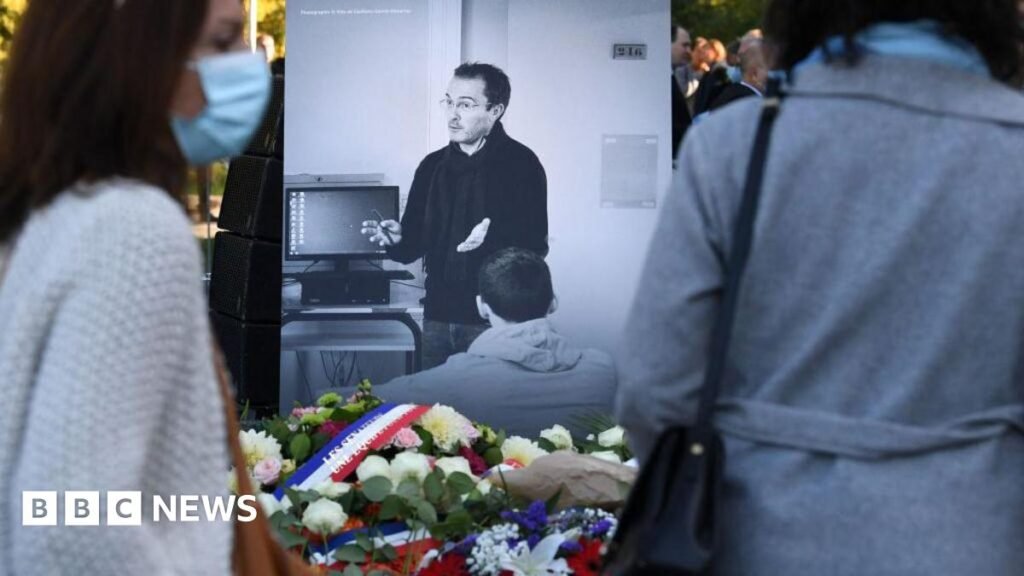Chnina and Sefriui never called for action against Pati, and they were unaware of Anzorov’s existence until after the murder.
But for the prosecutor’s office, they were still guilty of “terrorist association” because they knew about the possible consequences of their campaign.
“Nobody is saying they wanted Samuel Patti dead, but after lighting 1,000 digital fuses, they knew one of them would lead to jihadist violence against the teacher,” prosecutors said in a statement.
The context in October 2020 was one of heightened tensions over jihadist violence after Charlie Hebdo republished some controversial cartoons of Muhammad. Five years earlier, most of the magazine’s staff had been killed in a jihadist attack on their Paris office.
In court this week, the longest terms were sought for two of Anzorov’s friends who accompanied him when he bought a knife and a fake gun. One of them also took Anzorov to school on the day of the attack.
None of these defendants is a radicalized Muslim, and it was not established in court that they knew of Anzorov’s plans.
That’s why the prosecutor’s office reduced the charge against them to “complicity in a terrorist attack”, which carries a life sentence.
The other four defendants are people Anzorov chatted with, and he never revealed his intention to kill Petty.
One of them, a convert to Islam, Priscilla Mangel, admitted to making “provocative” comments online about the Patey case, but said she would never have made them if she had known about Anzorov’s intentions.
“For me, it was a pointless discussion with an anonymous person.”
According to defense attorneys, none of the defendants would have been prosecuted for what they said had it not been for Patti’s murder.
So the main legal question before the court is whether the statements can become illegal depending on what happens next.

